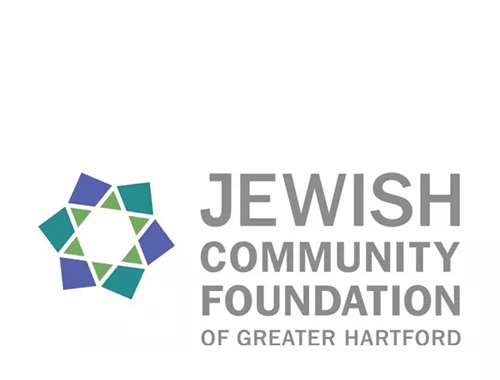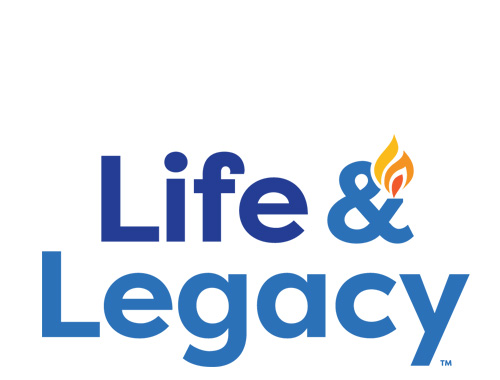Schechter Shavua: April 4, 2025
Creative Writing Unit Brings Imagination to Life
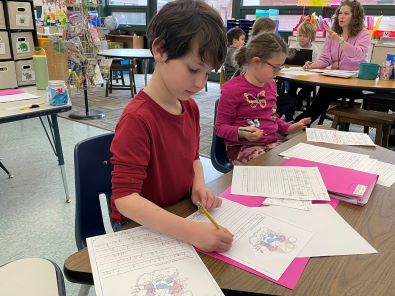 Once upon a time there was a unicorn.... The Anafim students (grades 1-2) have been immersed in the world of creative writing. Tasked with writing a story inspired by a picture of a unicorn on a cloud with a castle, they each created a piece of writing starting with a story map. This fundamental skill helps students plan their characters, setting, beginning (introduction), middle (problem), and ending (solution). Students completed a first draft, then went through the editing process with Ms. Harris. After their revisions are complete, students are looking forward to sharing their stories with their classmates. Ms. Harris noted that the Anafim students worked very hard on these stories, and she is so proud of them.
Once upon a time there was a unicorn.... The Anafim students (grades 1-2) have been immersed in the world of creative writing. Tasked with writing a story inspired by a picture of a unicorn on a cloud with a castle, they each created a piece of writing starting with a story map. This fundamental skill helps students plan their characters, setting, beginning (introduction), middle (problem), and ending (solution). Students completed a first draft, then went through the editing process with Ms. Harris. After their revisions are complete, students are looking forward to sharing their stories with their classmates. Ms. Harris noted that the Anafim students worked very hard on these stories, and she is so proud of them.
Middle School Debaters Shape Ideas into Thoughtful Discussions
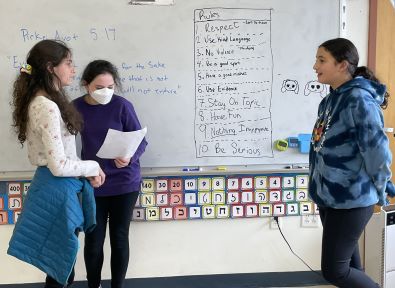 Should acts of Chesed/Kindness be required in school? In Debate Club, led by Development Director Nicole Schaffer, students explore the Jewish approach to respectful disagreement, guided by Pirkei Avot 5:17: "Every argument that is for the sake of Heaven will endure, but one that is not for the sake of Heaven will not endure." Students learn that arguments made in pursuit of truth and understanding are valuable and important. The debates of Hillel and Shammai demonstrate how differing perspectives can shape tradition while remaining rooted in respect. Guided by these lessons, the goal of Debate Club is to learn how to engage in debates and disagreements today, using Jewish teachings as a guide for thoughtful discussions that challenge ideas and deepen students' understanding of critical thinking, the value of thoughtful dialogue, and the pursuit of truth.
Should acts of Chesed/Kindness be required in school? In Debate Club, led by Development Director Nicole Schaffer, students explore the Jewish approach to respectful disagreement, guided by Pirkei Avot 5:17: "Every argument that is for the sake of Heaven will endure, but one that is not for the sake of Heaven will not endure." Students learn that arguments made in pursuit of truth and understanding are valuable and important. The debates of Hillel and Shammai demonstrate how differing perspectives can shape tradition while remaining rooted in respect. Guided by these lessons, the goal of Debate Club is to learn how to engage in debates and disagreements today, using Jewish teachings as a guide for thoughtful discussions that challenge ideas and deepen students' understanding of critical thinking, the value of thoughtful dialogue, and the pursuit of truth.
Click HERE to see photos of our debaters!
Schechter Grad Gabe Epstein Shoots for the Moon!
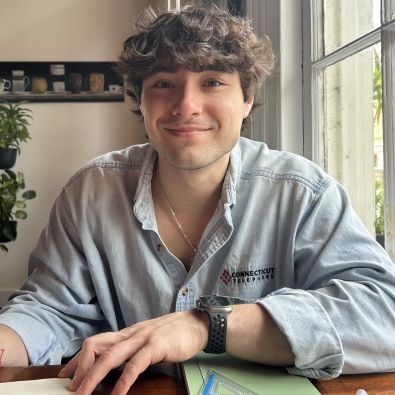 Mazal tov to Gabriel Epstein (2015) and his team SCALAR (Scalable Constructs for Advanced Lunar Activities and Research), representing Tulane University! They have been selected by NASA as finalists in the nationwide 2025 RASC-AL competition. Their project will compete in the Sustained Lunar Evolution category this June—alongside teams from MIT and Virginia Polytechnic Institute.
Mazal tov to Gabriel Epstein (2015) and his team SCALAR (Scalable Constructs for Advanced Lunar Activities and Research), representing Tulane University! They have been selected by NASA as finalists in the nationwide 2025 RASC-AL competition. Their project will compete in the Sustained Lunar Evolution category this June—alongside teams from MIT and Virginia Polytechnic Institute.
Students were challenged to design mission architectures for deep space exploration, lunar development, and Mars systems — concepts that closely mirror real NASA initiatives. Only a select number of university teams from across the country are chosen as finalists.
NASA says that “RASC-AL projects will contribute real solutions to some of the most pressing challenges we currently face” and are “a brilliant example of innovation, creativity, and interdisciplinary collaboration at its best.” Some winning ideas from RASC-AL have even influenced actual NASA planning and technologies. Check out the video that Gabe and his team created to explain their project! 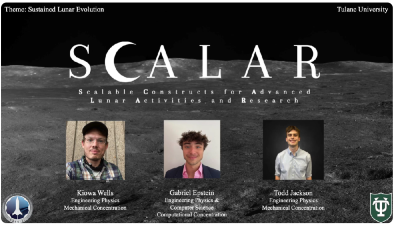
Gabe is a busy guy… he is majoring in Engineering Physics at Tulane University, with a certificate in Computational Engineering and a Coordinate Major in Computer Science and minoring in Arabic language. He is also fluent in Spanish and Hebrew!
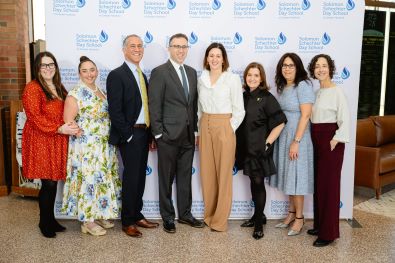
Todah rabah to all who celebrated the Schechter CommUNITY and Arielle and Jason Kay at Ner Tamid 2025! We are filled with gratitude for our wonderful students, families, faculty, alumni, alumni parents, board members, and the Greater Hartford Jewish community.
Click HERE to see lots of Ner Tamid photos!
Parashat Vayikra—Use Things, Love People
 When approaching God, we typically do so through emotions and prayers. We may use a siddur/prayerbook; we may just string our own words together; we may just call out with tears. Sometimes, the words just channel our feelings, and sometimes, the words can help shape how we feel. Either way, prayer doesn’t cost a dime, and certainly doesn’t harm anyone or anything.
When approaching God, we typically do so through emotions and prayers. We may use a siddur/prayerbook; we may just string our own words together; we may just call out with tears. Sometimes, the words just channel our feelings, and sometimes, the words can help shape how we feel. Either way, prayer doesn’t cost a dime, and certainly doesn’t harm anyone or anything.
Things were very different in ancient Israel! In biblical times, our ancestors’ relationship with God was mainly expressed through animal sacrifice. True, there were also dough and flour offerings, but the majority of korbanot /sacrifices involved cattle, sheep, and goats. Some were brought by individuals, and others were brought on behalf of the community, using funds that everyone paid. It can be very startling to read this week’s parashah, and the ones that follow, which are full of detail about what was sacrificed, what happened to the various parts of the animals, how much incense was used, etc. We can’t help but wonder: why was so much stuff—oil, incense, grain, animals, salt, wine—part of the Torah’s vision for how to connect to God?
This question has no answer—and any number of answers. The Torah doesn’t tell us why exactly God wanted korbanot, and so we are free to find or suggest interpretations that are meaningful to us. This week, I’ve been thinking a lot about the elegant piece of advice that goes, “Use things, love people—never the reverse.” Why might the Torah establish a system for relating to God that involves the sacrifice of material things? What value could there be in offering an animal beyond the value of a heartfelt prayer? Perhaps the Torah is trying to help us maintain a healthy relationship with our possessions.
The system of korbanotwas never going to bankrupt an ancient Israelite—in fact, the system offered a sliding scale for some sacrifices so that even the poor could participate—but it might have caused some occasional frustration. “My whole livelihood is my herd of cows—why does God need me to sacrifice one?” This frustration would be understandable—but at the same time, the Torah might be trying to help us remember that while our stuff is important, our relationships are more important.
May we all succeed in taking this lesson to heart—valuing our possessions, but reserving real love for our relationships.
Shabbat shalom,
Rabbi Jonathan Berger
Head of School
Question for the Shabbat table:
1. The word korban comes from the root for “close/near.” It’s obvious how gift-giving can be part of strengthening a relationship—but how might these sacrifices help people to become (or feel) close to God?
2. How do you find the balance between valuing possessions and becoming too focused on them?
Solomon Schechter Day School
of Greater Hartford
26 Buena Vista Road
West Hartford, CT 06107
© Solomon Schechter Day School of Greater Hartford | Site design Knowles Kreative

